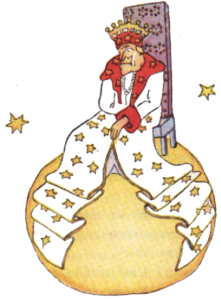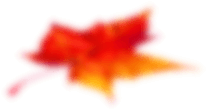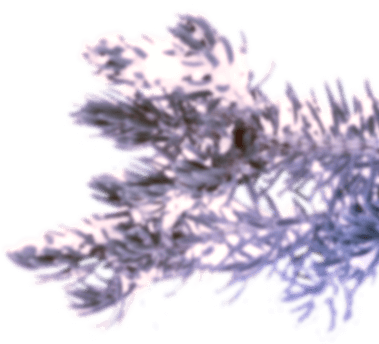Nov 20., 2016 / General, Homilies, Soul Food
Kings
Homily by Fr. Arnel Aquino, SJ on the Solemnity of Christ the King, at the Cenacle Retreat House, Quezon City.
Neuropsychologist, Dr. James Fallon has studied the neuropathology of dictators. In a brief summary, he says in Psychology Today: “So, what binds dictators across history and geography? What traits do they share? They are usually charming, charismatic, intelligent. They brim with self-confidence & independence, & exude sexual energy. (From an accompanying video) Many of them are hypersexual, some are asexual, but sexually, many of them are off. They are also extremely self-absorbed, masterful liars, compassionless, often sadistic, & possess a boundless appetite for power.” Sound familiar? Hitler, Stalin, Quadafi, Putin, Kim Jong-il, Assad, etc., & of course, the latest “Miss Universe” of leaders today, Donald Trump, they all fit the bill. Pinoys aren’t exempt, are we? It’s interesting, but dictators do have things in common. Grandiosity—the rich ones, in lifestyle; the not-so-rich, in behavior; ballistic attitude against opposers; victorious rhetoric of being champions for the poor, even if everybody knows they all connive with aristocrats who, with them, do not care a whit for the poor.
Dr. Fallon says that dictators show the same behaviors as ordinary psychopaths. Psychopaths are the way they are because of an underdeveloped, scarred, or damaged pre-frontal cortex. That area of the brain is abnormally low-activity. This predisposes them to aggression. Their amygdala is also abnormal so they can’t regulate their fear very well, or their rage, sexual impulses, & emotional memory. Organized chaos, that’s how their neurochemicals fire. I guess that’s why they’re charismatic yet aggressive, brilliant yet deeply hateful, friendly yet coldly vindictive. In all this, they feel very good about themselves!
See, when you read & listen to Dr. Fallon, you’ll find that he’s very professional. He doesn’t make value judgments. He simply reports his fascinating neurological findings. So, listening to him, you start to get the impression that psychopaths aren’t that way by choice; that it’s not them, it’s how their brains are wired; that they’re, well, more or less, “normal” rather than bone-deep wacko. After all, for us, wacko means mental hospital crazy.
Right?
These men, however, are out loose, & something about them appeals to thousands. Do we not, after all, remember that it’s people who sit “kings” on their thrones? So, something in these pathological “kings” stirs people profoundly. I’m not sure what it is, but more & more, I think that their strange mystique appeals to people’s core issues of powerlessness. The helpless, the edged-out, the forgotten, the mass of everyday humanity seem to enthrone with these “kings” their long-standing yearnings—in spite of signs aplenty pointing right the opposite! But they’re also enthroned by the self-seeking wealthy who would befriend anyone & anything to perpetuate themselves. Question: is it fair to say that pathological dictators do not m ake themselves kings, but rather, that people crown them? Maybe. Maybe we do choose our kings. And from the way we, Pinoys, have freely elected sovereigns—& I wish to emphasize that word, “freely”, something not many nations today happen to enjoy—from the way we’ve crowned our kings, it isn’t clear if we really know what we’re doing, even if we might know what we want.
ake themselves kings, but rather, that people crown them? Maybe. Maybe we do choose our kings. And from the way we, Pinoys, have freely elected sovereigns—& I wish to emphasize that word, “freely”, something not many nations today happen to enjoy—from the way we’ve crowned our kings, it isn’t clear if we really know what we’re doing, even if we might know what we want.
In the 1st reading, Yahweh chooses David & makes him king, a breath of fresh air after the troubled reign of manic-depressive Saul whom, by the way, people hailed as their first king. David was the greatest king of Israel. Everything their past kings were, David wasn’t. He was merciful. He made mistakes but admitted he was wrong & repented. He cared for his subjects rather than lorded it over them. Most of all, may takot siya sa Diyos. David feared & was faithful to God more than anybody else, even more than himself.
The next greatest king would be born from David’s lineage. And like David, this one was merciful. He was deeply in touch with his strengths & weaknesses. He had a soft spot for the helpless, the edged-out, the forgotten. He repudiated human evils & human suffering, not his enemies. With great respect & captivating gentleness, he carried himself in simplicity. But the self-righteous angered him, the overbearing, the snobbish; because they added burden to the already burdened. Most of all, he was wise because his heart was his Father’s. ‘Yun nga lang, hindi handa para sa isang hari tulad niya ang sarili niyang mundong ginalawan. So they parodied his sovereignty with thorns for a crown, a cross for a throne, & a mocking supertitle, “king of the Jews.”
We know better today, don’t we? Then again, I’m not sure. Maybe, had we kept our eyes fixed on the “king of the Jews” every time we exercised our God-given freedom to elect our “kings,” then maybe, we would’ve reached that day when our potential leaders really worked themselves up to the criteria—the criteria of the crucified king of the Jews who healed our suffering, or at least, made sense of our suffering through is own—instead of worsen it. Unless we keep our eyes lifted towards the our king of the Jews, we will be choosing time & again, & giving tremendous power to psychopaths. And, you know, dear sisters & brothers, I hate to say this, but unless we learned to apply the criteria of the king of the Jews to our potential kings, we’d most probably keep deserving these psychopaths.
May this season of Advent be a time of repentance & forgiveness. Maybe we can also repent over, & later forgive ourselves, for many of our questionable choices for “kings”. May the Lord look with mercy upon all of us from his cross & free us from our own crosses, some of which have been self-chosen. Amen.









